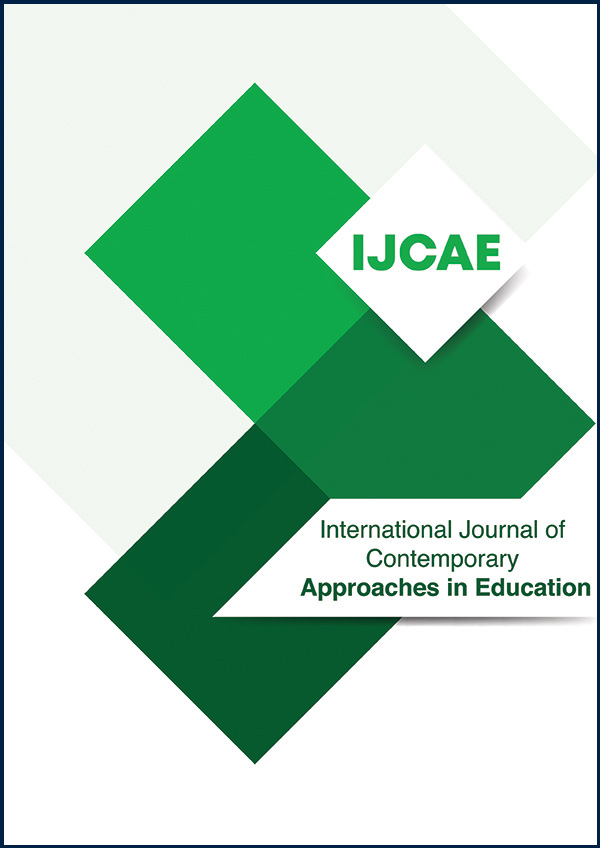- Aydemir, Ö. (2007). İlköğretim II. Kademe Öğrencilerinin İngilizce Dersinde Kullandıkları [Google Scholar]
- Başarı Başarısızlık Yüklemeleri [The Learning Strategies and Success – Failure Attributions of Primary School 2nd Level Students That They Use in English Lesson]. Yüksek Lisans Tezi. Trakya Üniversitesi, Sosyal Bilimler Enstitüsü. [Google Scholar]
- Aydın, S. (2006). İkinci dil olarak İngilizce öğrenimindeki başarı düzeyinin bazı değişkenlere göre incelenmesi [An investigation of English as a second language achievement levels in relation to certain variables]. Atatürk Üniversitesi Sosyal Bilimler Enstitüsü Dergisi, 8(2), 273-285. [Google Scholar]
- Balçıkanlı, C. (2023, Kasım). İngilizce yeterlilik endeksi 2023 değerlendirmesi [2023 English proficiency index review]. GazeteBilim. Erişim adresi: https://gazetebilim.com.tr/ingilizce-yeterlilik-endeksi-2023-degerlendirmesi/. [Google Scholar]
- Barrowclough, Christine., ve Hooley, Jill M. (2003). Attributions and expressed emotion: A review, Clinical Psychology Review 23, pp.849-880. [Google Scholar]
- Bar-Tal, D. (1978). Attributional Analysis of Achievement-related Behavior, Review of Educational Research Spring, 48(2), 259-271. [Google Scholar]
- Besimoğlu, S., Serdar, H., & Yavuz, Ş. (2010). Exploring students' attributions for their successes and failures in English language learning. HAYEF Journal of Education, 7(2). [Google Scholar]
- Büyüköztürk, Ş., Çakmak, E. K., Akgün, Ö. E., Karadeniz, Ş. & Demirel, F. (2020). Eğitimde bilimsel araştırma yöntemleri [Scientific research methods in education]. Ankara: Pegem. [Google Scholar]
- Can, H., Aşan, Ö., & Aydın, E. M. (2006). Örgütsel davranış [Organizational behavior]. İstanbul: Arıkan. [Google Scholar]
- Cohen, L., Manion, L., & Morrison, K. (2018). Research methods in education (8th ed.). London: Routledge. https://doi.org/10.4324/9781315456539 [Google Scholar] [Crossref]
- Creswell, J.W. and Creswell, J.D. (2018) Research design: Qualitative, quantitative, and mixed methods approaches. Los Angeles: Sage [Google Scholar]
- Çağatay, S. (2018). The effectiveness of attribution retraining on language learners’attributions, future self-guides and motivated behaviour, effort. Yüksek Lisans Tezi. Hacettepe Üniversitesi, Eğitim Bilimleri Enstitüsü. [Google Scholar]
- Dille, B., & Mezack, M. (1991). Identifying predictors of high risk among community college telecourse students. American Journal of Distance Education, 5(1), 24-35. [Google Scholar]
- Eberly, Marion B., Holley, Erica C., Johnson, Michael D. and Mitchell, Terence R. Beyond internal and external: A dyadic theory of relational attributions, Academy of Management Review, 36 (4), 2011, pp.731-753. [Google Scholar]
- Erten, İ. H., & Burden, R. L. (2014). The relationship between academic selfconcept, attributions, and L2 achievement. System, 42, 391-401. [Google Scholar]
- Hsieh, P. P., & Schallert, D. L. (2008). Implications from self-efficacy and attribution theories for an understanding of undergraduates‟ motivation in a foreign language course, Contemporary Educational Psychology, 33(4), 513-532. [Google Scholar]
- Kağıtçıbaşı, C. (1999). Yeni insan ve insanlar [The new human and people]. İstanbul: Evrim. [Google Scholar]
- Kızgın, Y. & Dalgın, T. (2012). Atfetme Teorisi: Öğrencilerin başarı ve başarısızlıklarını değerlendirmedeki atfetme farklılıkları [Attribution theory: Attribution differences of students between success and failure circumstances]. Uluslararası Yönetim İktisat ve İşletme Dergisi, 8(15), 61-77. [Google Scholar]
- Koçyiğit, M. (2011). Üniversite öğrencilerinin nedensel yüklemeleri ve öğrenme Stilleri [Causal attributions and learning styles of university students]. Yüksek Lisans Tezi. Afyon Kocatepe Üniversitesi, Sosyal Bilimler Enstitüsü. [Google Scholar]
- Peacock, M. (2009). Attribution and learning English as a foreign language, ELT Journal, 64, 2. [Google Scholar]
- Satıcılar, U. (2006). An investigation into the achievement attributions of English language learners in different grades. Yüksek Lisans Tezi. Çanakkale Onsekiz Mart Üniversitesi, Eğitim Bilimleri Enstitüsü. [Google Scholar]
- Semiz, Ö. (2011). Bir eğitim programının yükleme inançları, öz-yeterlik, dil öğrenme inanışları, başarı ve öğrenci çabası üzerindeki etkileri: Motivasyon yönünden risk altındaki yabancı dil öğrencileri üzerine bir çalışma [The effects of a training program on attributional beliefs, self-efficacy, language learning beliefs, achievement and student effort: A study on motivationally at-risk EFL students]. Doktora Tezi. Atatürk Üniversitesi, Eğitim Bilimleri Enstitüsü. [Google Scholar]
- Senemoğlu, N. (2020). Gelişim öğrenme ve öğretim [Development, learning and instruction]. Ankara: Anı. [Google Scholar]
- Specht, N, Fichtel S. & Meyer, A. (2007), Perception and attribution of employees’ effort and abilities the impact on customer encounter satisfaction. International Journal of Service Industry Management, 18(5), 534-555. [Google Scholar]
- Tabachnick, B.G. & Fidell, L.S. (2013). Using multivariate statistics (sixth ed.). Pearson: Boston. [Google Scholar]
- Taşkıran, A. (2017). Anadolu üniversitesi açıköğretim fakültesi öğrencilerinin başarı atıfları üzerine fenomenolojik bir inceleme [A Phenomenological Research on Anadolu University Open Education Faculty Students' Attributions of Perceived Success]. Eğitimde Nitel Araştırmalar Dergisi-Journal of Qualitative Research in Education, 5(1), 58-79. [Online] www.enadonline.com DOI: 10.14689/issn.2148-2624.1.5c1s3m [Google Scholar]
- Taşkıran, A., & Aydın, B. (2017). İngilizceyi yabancı dil olarak öğrenenlerin başarı ve başarısızlıklarına yaptıkları nedensel yüklemeler ve boyutları [Causal attributions and dimensions of success and failure among learners of English as a foreign language]. Anadolu Üniversitesi Sosyal Bilimler Dergisi, 17(2), 11-26. [Google Scholar]
- Turunç, Ö. & Turgut, H. (Ed.). (2017). Yönetim ve strateji 101 teori ve yaklaşım [Management and strategy: 101 theories and approaches]. Ankara: Siyasal. [Google Scholar]
- Tutar, H. (2018). Davranış bilimleri kavramlar ve kuramlar [Behavioral sciences: Concepts and theories]. Ankara: Seçkin. [Google Scholar]
- Uslu, E. (2022). İşletmede yönetim ve fonksiyon düzeyinde strateji [Business management and strategy at the functional level]. Ankara: Siyasal. [Google Scholar]
- Weiner, B. (1986). An attributional theory of motivation and emotion, New York: Springer-Verlag. [Google Scholar]
- Yıldırım, S. (2012). Hemşirelik hizmetlerinde nedensel yükleme teorisi: Bir alan araştırması [Causal attribution theory in nursing services: A field study]. Hacettepe Sağlık İdaresi Dergisi, 15(2), 27–36. [Google Scholar]
|

